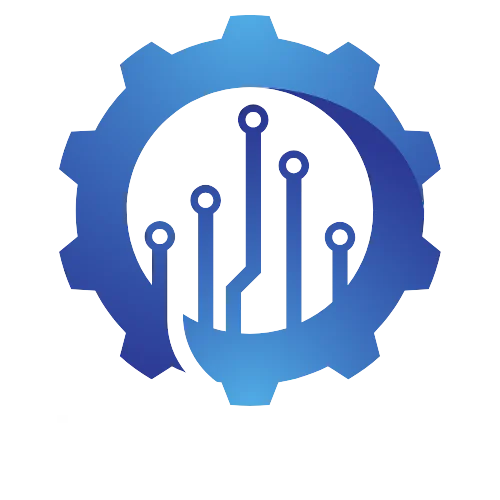In a world where smart fridges can remind you to buy milk and thermostats learn your temperature preferences, the Internet of Things (IoT) isn’t just a buzzword—it’s a revolution. Imagine a future where everything from your coffee maker to your car communicates seamlessly. Sounds like something out of a sci-fi movie, right? Well, it’s happening now, and there’s never been a better time to dive into this tech wonderland.
Table of Contents
ToggleOverview Of Internet Of Things
The Internet of Things (IoT) refers to a network of interconnected devices that communicate and exchange data. Smart appliances enhance everyday life by automating tasks and providing real-time information. For instance, smart thermostats optimize energy usage based on user preferences.
Countless devices fall under the IoT umbrella, ranging from health trackers to industrial machinery. These devices utilize sensors and software to gather and analyze data, leading to smarter decision making. Major industries like healthcare, agriculture, and transportation leverage IoT technology to improve efficiency and optimize services.
IoT systems offer significant benefits, such as remote monitoring and predictive maintenance. Remote monitoring enables users to control devices from anywhere, while predictive maintenance minimizes downtime and reduces costs. In cities, IoT solutions manage traffic flow and public services, enhancing overall quality of life.
Interoperability remains crucial in IoT systems. Various devices must communicate seamlessly to provide a cohesive user experience. Emerging standards and protocols facilitate this communication, making integration smoother and more efficient.
Security concerns persist within the IoT landscape. Vulnerabilities in devices or networks can expose users to risks, prompting the development of robust security measures. Encryption and authentication strategies are essential in safeguarding data and maintaining user trust.
Continuously evolving, IoT drives innovation across sectors, paving the way for advancements like smart cities and connected healthcare. Educating on IoT principles and applications prepares individuals for this technological shift that shapes the modern world.
Benefits Of Taking An Internet Of Things Course

Taking an Internet of Things course offers numerous advantages, from expanding skills to enhancing career prospects.
Skill Development
Skill development becomes crucial in a rapidly evolving technological landscape. Participants learn about device connectivity, data analytics, and sensor technologies. Acquiring knowledge in programming languages like Python or Java enhances the ability to develop IoT applications. Hands-on experience with real-world projects fosters practical skills that are immediately applicable. Understanding security measures and protocols becomes essential, as it addresses potential vulnerabilities. Courses typically cover various IoT platforms, providing exposure to tools and frameworks used in the industry. Enriching skill sets prepares individuals for the demands of the job market.
Career Opportunities
Career opportunities expand significantly for those who pursue an Internet of Things course. Industries increasingly rely on IoT solutions, creating a demand for skilled professionals. Job roles such as IoT developer, data analyst, and systems architect gain popularity. Employers seek individuals knowledgeable in smart technology implementation and data interpretation. High salaries often accompany these positions, reflecting the specialized skills required. Networking prospects arise through course participation, connecting learners with industry professionals and potential employers. Ultimately, completing an IoT course enhances professional visibility and opens doors to innovative career paths.
Course Curriculum
The Internet of Things course covers essential knowledge and skills that empower learners to excel in this evolving field.
Key Topics Covered
Topics include device connectivity, data analytics, and sensor technologies. Learners examine IoT architecture, exploring how devices interact within networks. Security protocols play a vital role, teaching participants how to safeguard information and ensure user trust. Data management techniques are highlighted, equipping students to analyze large datasets effectively. Emerging trends, such as edge computing and machine learning applications, are also covered. Each module aims to provide comprehensive insights, equipping participants with the knowledge that fosters career growth.
Practical Applications
In this course, hands-on projects simulate real-world scenarios. Participants engage with smart home systems, demonstrating IoT’s impact on everyday life. Industrial automation projects showcase efficiency improvements in manufacturing processes. Participants analyze data from health monitoring devices, revealing insights beneficial to patient care. Urban planning activities illustrate how IoT solutions improve city services and manage resources. Overall, practical applications reinforce theoretical knowledge, ensuring students can translate their skills into real-world success.
Choosing The Right Internet Of Things Course
Selecting the right Internet of Things course involves careful consideration of various factors. Prioritizing personal goals and learning preferences plays a critical role in this decision-making process.
Factors To Consider
Assessing course content is essential. Participants should ensure it covers critical topics like device connectivity, data analytics, and security protocols. Evaluating delivery format matters too; some may prefer hands-on projects or practical applications in live environments. Recognizing accreditation from reputable institutions can signal quality. Checking learner reviews helps gauge course effectiveness and user satisfaction. Additionally, considering the duration and level of difficulty ensures alignment with individual commitments and skill levels.
Top Online Platforms
Numerous platforms provide access to quality IoT courses. Coursera teams up with renowned universities, offering diverse IoT subjects, from introductory to advanced levels. Udemy is known for its extensive course library, including specialized topics tailored to different experience levels. edX partners with top institutions, providing professional certifications and micro-credentials in IoT. LinkedIn Learning emphasizes practical skills and industry relevance in its IoT offerings. Exploring these platforms assists learners in identifying suitable courses that match their career aspirations and learning preferences.
Investing in an Internet of Things course is a strategic move for anyone looking to thrive in today’s tech-driven landscape. As IoT continues to expand its influence across various sectors, the demand for knowledgeable professionals is only set to rise.
By acquiring essential skills in device connectivity and data analytics, learners can position themselves for exciting career opportunities. The hands-on projects and real-world applications offered in these courses ensure that participants not only understand the theory but also gain practical experience.
Choosing the right course tailored to individual goals can significantly enhance one’s professional journey in this dynamic field. Embracing IoT education today is a step toward a successful future.




